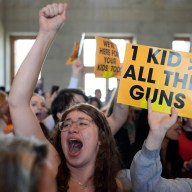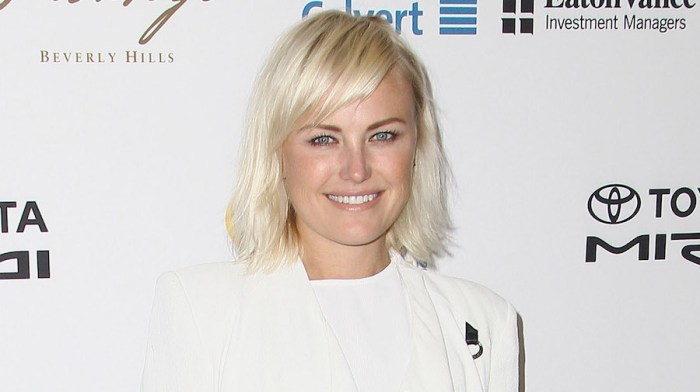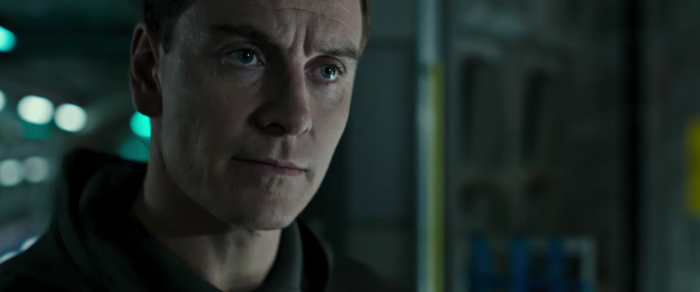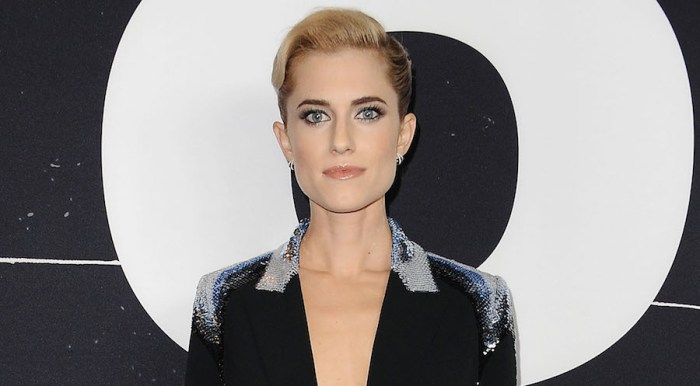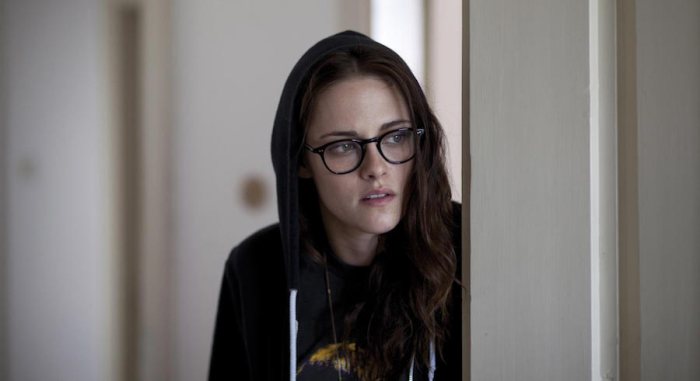This Friday sees the reissue of “Metropolitan,” Whit Stillman’s 1990 indie dramedy about a group of young, upper class New Yorkers on Christmas break from school, which they mostly spend at debutante ball parties and, after they end, in fancy living rooms, where they spend all night, drinking, smoking, debating, firing off quips and in some cases flirting. It proved a surprise hit — a surprise even to some of the cast members — and stands as a landmark of early ’90s independent cinema, especially as it concerns a group not always recognized among low budget cinema: those with money. We didn’t have a chance to talk to its writer-director or many of the cast members for its 25th anniversary. However we did talk to three of the leads: Carolyn Farina, who plays shy Audrey; Taylor Nichols, who plays insecure yet intellectually confident Charlie; and Chris Eigeman, who plays scene-stealing, snooty Nick, who gets many of the best lines. What follows is a mini-oral history, charting their sides of the making and what came afterwards. All of the actors in “Metropolitan” were new to film. Most, if not all, were stage actors. For awhile there has been a rumor that Carolyn Farina was discovered at a department store. Though she did work at Macy’s at the time… Carolyn Farina (Audrey): That’s not true. I wish it was. That would have been so much more interesting — like Lana Turner being found in an ice cream shop. I was an out-of-work actress and found it in the ads like everyone else. There is a funny story, though. I stood in a line with seven people. After my turn I walked away. It was the middle of winter. I grabbed my coat and it was upside down. I had about five dollars in change in my pocket. And every penny and quarter and nickel fell out on the floor. I was so embarrassed. As I was picking up all my change, Whit says to me, “Excuse me, would you mind coming back in a couple of hours?” I was lucky my change fell out. It gave them time to think about me. RELATED: Whit Stillman talks about his Amazon pilot, “The Cosmopolitans” Chris Eigeman (Nick): It was clearly going to be a clusterf—. The ad asked for anybody who could play people in the mid-20s. I mean, that’s the largest demographic of actors you could ask for. I was going to blow this one off. But I was living downtown and it was a block from my apartment. So I went and it was a zoo. There were hundreds upon hundreds upon hundreds of people. I got a number and went back to my apartment. I auditioned and I didn’t get the part. Someone else got my part originally. Then a couple days into shooting, they swapped a few actors around, and I got in. Taylor Nichols (Charlie): I was doing a scene from a Leopold and Loeb play, so I was dressed really preppie. I went to this open call and knew nothing about it. I almost left. There were so many people I thought I’d never get picked. I was actually supposed to meet a friend from acting class for a drink. I wound up blowing that off. I’m glad I did. Farina: [The world] was so foreign to me. Debutantes were like Eskimos. It was like, gosh, do they really exist? It seemed very glamorous from my working class Queens upbringing.
Nichols: I’m from Michigan. I went to the University of Michigan and public schools. I knew nothing about it at all. When we filmed in the Hamptons it was my first time gong to the Hamptons. Eigeman: I didn’t run out and try to get myself on some VIP list of deb balls. I probably could have. But I didn’t.
Farina: The environment these kids were from…they were still kids, going through similar issues to kids in Queens: does this boy like me? What if he doesn’t? What if he likes someone else? What am I going to do when I get older? We all go through the same things. “Metropolitan” is a very human story. The actors all found themselves shooting both in rooms and on the streets, and for a first-time director, making a film about the idle rich on the cheap.
Eigeman: We shot at night. I had a day job parking cars at a restaurant. I would sleep until 11, I’d get to the restaurant by 11:45, I’d park cars, then I’d end up going to the set at 6 p.m. We’d work until 6 a.m. For me it was more a chronicle of sleep deprivation than anything else. Everyone was really tired all the time. There were people in that movie who were not pretending to be asleep. There were people who were actually asleep. The character Brian [Leder] plays, who’s asleep all the time [named Fred]? Half the time he was actually asleep. Farina: We had lunch at midnight, which always consisted of burgers at this one burger joint. We would all pile into this rinky-dink diner. A burger at midnight doesn’t sit well in the stomach. And I would have to take a taxi back to Queen at five in the morning. Eigeman: It was also a process of stealing. There’s a ton of shots stolen. You couldn’t shoot in the Plaza, but you were begrudgingly allowed to shoot the exterior, since the park with the fountain outside is a public space. But we had to sneak into the Plaza in our tuxedos. One of us would have a walkie-talkie. They would whisper over it that they were rolling, and we would walk out of the Plaza and start our lines. We were caught a bunch of times. We were thrown out of places. We were thrown out of Grand Central. The scene where I leave, we stole that at Penn Station. It’s one thing to shoot guerilla style in New York City. But shooting a guerilla film in tuxedos, that’s a couple degrees harder. You look like penguins. Whit would sometimes say we were doing wedding videos. “We’re just shooting on a Super 16 Arriflex, but it’s a high-end wedding video service.” Despite the exhaustion and the strain, they had to speak flowery dialogue and discover rich and complex characters.
Nichols: I’m kind of the straight man. Charlie was such a sincere, earnest character that he never set out to be funny. He set out to be honest and sincere, and in doing that he’s funny. Eigeman: I remember thinking of Nick as one of those guys who interminably tortured me in high school — one of those guys I would steer clear of. Maybe he has a heart of gold, but he could be a real pr—. That was my way into it: let’s go through a catalog of people who tortured me in high school and go from there. Nichols: I have a slight stammer. It’s my normal speech. Whit grabbed on to that and really liked it. He kept saying, “Can you do that a little bit more? Can you do that a little bit more?” That was my slip. That was the thing I wasn’t crazy about showing it to people. Then comes this director who says, “That thing you’re not crazy about? I’m crazy about it.” That is terrifying in the moment and extremely empowering in the long run. I think if everyone can embrace the things that make them not perfect, they become closer to perfect. “Metropolitan” wound up playing Sundance, and the year after Steven Soderbergh’s “sex, lies and videotape” had become a phenomenon, kickstarting a new wave of independent filmmaking. When it came out it became an art house hit and was even nominated for the Best Screenplay Oscar, which it lost to “Ghost.” Nichols: I went back to doing my own thing: auditioning in New York for plays, commercials and films — anything I could get. I had almost forgotten about the movie. I was on tour with “Sugarbabies,” which was the Mickey Rooney-Ann Miller musical. Someone said, “Taylor, your picture’s on the cover of the Arts & Leisure section of The New York Times.” I was like, “Wow, it’s going to have a life.” Chris and I used to say, “No one’s going to see this movie. No one’s going to think it’s funny.” We thought it was, but we weren’t sure who else would. Eigeman: I remember reading about it in The New York Times and thinking, “This is insane.” I don’t think I had even seen it at that point. Then Variety reviewed it and I thought, “Holy s—, this is amazing.” Nichols: “Metropolitan” was almost on the forefront of those early indie films. It was part of that early period. Now most of the films I do have such a difficult time getting out there because there’s so many. It’s a very tough market now. Because “Metropolitan” was the first film for Farina, Eigeman and Nichols, they inevitably found themselves cast in similar roles. Eigeman would go on to play sarcastic, hyper-articulate misanthropes in Noah Baumbach’s “Kicking and Screaming” and “Mr. Jealousy,” and even did commercials in a variation on that persona. Eigeman and Nichols also reunited for “Barcelona,” Stillman’s next film. Did they feel typecast? Eigeman: Of course. No doubt, right? You could view that as a bad thing or you could view that as a good thing. You can’t really fight it, so there’s no reason to be cranky about it. If the first time anybody sees you you’re cracking wise like the demon child of F. Scott Fitzgerald and Noel Coward, don’t be surprised if that’s what people think you are. It was a real blessing because it got me to work with directors who were incredibly verbal writers, like Noah Baumbach and Amy Sherman-Palladino, on “Gilmore Girls.” That’s what I gravitate towards anyway. Nothing’s harder for me than to act in a badly written thing. Farina: I was getting offers similar to Audrey. That’s what happens in Hollywood. Until you get the opportunity to prove yourself otherwise, you’re offered characters that are similar to the one you did before. I did a few theater roles and the characters I was offered were pretty much shy and meek. It would have been fun to play somebody the polar opposite of me. I have it in me. I’ve been a waitress. Nichols: I think we were all playing parts of Whit. All of us were playing a different facet of Whit’s personality. He’s not mono; he’s multifaceted. He’s not as easy to read as you may think. He has diverse feelings and thoughts. Whit had talked a long time ago about doing a Western. I don’t know what happened to it. It may have fallen through the cracks. I would pay money to see a Western by Whit Stilman, with Chris and me in it. Sometimes I would like him to branch out. I don’t think he’s ever going to change his writing style, just as Woody Allen doesn’t change his writing style too much. But I want him to tackle different types of characters with his same sense of comedy. His sense of comedy is very serious. Afterwards Farina had a couple roles, including a small part in Martin Scorsese’s “The Age of Innocence” — again, a high society movie. She wound up working for New York’s department of education and recently acquired a degree in School Psychology. Farina: There was a time when I felt I was getting a little long in the tooth to be working as an actress. Those roles disappear, as you get older. I think that’s changing now. That’s encouraging. Despite the fact that I had to explore other options, I think actors are born. Once you’re an actor it’s in your heart and it’s not something easily forgotten. In my heart I’m still an actor. I miss it, to be quit honest. If an opportunity materialized I would take it. Nichols: We were doing a photoshoot for Vanity Fair, and we almost fell back into our characters from the movie — those relationships. We were all sitting around The Players club in Gramercy Park in tuxes and fancy dresses, talking almost the exact same way we did 25 years ago. Chris and I were worried — “Do we really want to go back to the well of ‘Metropolitan’ one more time?” I don’t see it that way. I’m proud of the work and happy it’s getting recognized.
A mini-oral history of Whit Stillman’s ‘Metropolitan’ on its 25th anniversary
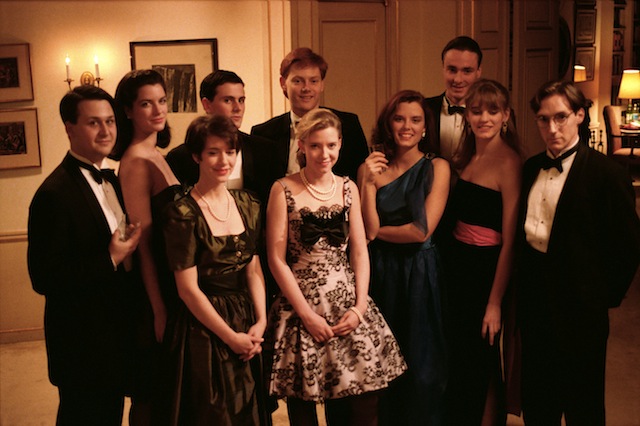
Rialto Pictures
Follow Matt Prigge on Twitter @mattprigge







